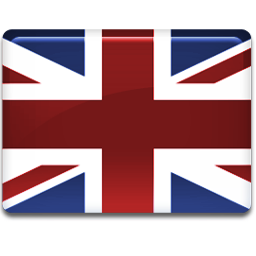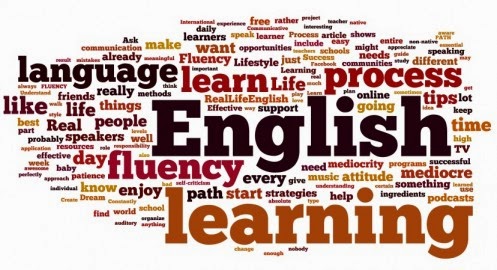1.ARTICOLUL
1. A este articol nehotarat pentru orice substantiv care incepe cu o consoana sau cu o semivocala (w, y sau sunetul iu)
An este articol nehotatat pentru orice substantiv care incepe cu o vocala.
An este articol nehotatat pentru orice substantiv care incepe cu o vocala.
un baiat - a boy
o fata - a girl
un unchi - an uncle
o matusa - an aunt
o fereastra - a window
un razboi - a war
un an - a year
un european - a European (eu se citeste iu)
o universitate - a university (u aici se citeste iu)
o umbrela - an umbrella (u aici se citeste ca a din padure)
o fata - a girl
un unchi - an uncle
o matusa - an aunt
o fereastra - a window
un razboi - a war
un an - a year
un european - a European (eu se citeste iu)
o universitate - a university (u aici se citeste iu)
o umbrela - an umbrella (u aici se citeste ca a din padure)
2. Some se foloseste ca plural pentru articolul nehotarat.
In limba engleza, articolul nehotarat nu are plural.
In limba romana insa, articolul nehotarat are la plural forma niste.
Acesta se traduce prin some care in limba engleza apartine altei categorii gramaticale.
In limba engleza, articolul nehotarat nu are plural.
In limba romana insa, articolul nehotarat are la plural forma niste.
Acesta se traduce prin some care in limba engleza apartine altei categorii gramaticale.
niste baieti - some boys
niste fete - some girls
niste unchi - some uncles
niste matusi - some aunts
niste fete - some girls
niste unchi - some uncles
niste matusi - some aunts
3. The este articol hotarat pentru orice substantiv si la singular si la plural. La substantivele care incep cu o vocala, exemplu: uncle, aunt, the se citeste dupa cum urmeaza.
baiatul - the boy
fata - the girl
baietii - the boys
fetele - the girls
unchiul - the uncle
matusa - the aunt
fata - the girl
baietii - the boys
fetele - the girls
unchiul - the uncle
matusa - the aunt
4. Daca dorim sa accentuam un substantiv care incepe cu o consoana, the se pronunta ca in cazul substantivelor care incep cu o vocala.
Iata! Aceea este casa (cu pricina)! - Look! That is THE house!
5. Un substantiv la singular cu cateva exceptii trebuie sa aiba un determinativ, acesta poate fi un articol: a, an, the; un adjectiv pronominal (posesiv, demonstrativ, etc) my house = casa mea, this house = casa aceasta sau un numeral, ten cars = zece masini, in romaneste acest lucru nu e totdeauna obligatoriu
in dulap - in the cupboard
pe raft - on the shelf
in sertarul meu - in my drawer
pe raft - on the shelf
in sertarul meu - in my drawer
6. Articolul se pune intre prepozitie si substantiv dar inaintea oricarui adjectiv.
un baiat inalt - a tall boy
fata inalta - the tall girl
in copacul inalt - in the tall tree
fata inalta - the tall girl
in copacul inalt - in the tall tree
7. Partile corpului se folosesc cu un adjectiv posesiv daca actiunea e facuta de cel ce detine acel corp dar cu un articol daca actiunea e facuta asupra acelei persoane.
A fost impuscat in brat - He was shot in the arm.
L-a privit in ochi - He looked him in the eye
El a ridicat mana - He raised his hand
El s-a uitat la piciorul sau - He looked at his leg
Iesi cu mainile deasupra capului - Come out with your hands above your head
L-a privit in ochi - He looked him in the eye
El a ridicat mana - He raised his hand
El s-a uitat la piciorul sau - He looked at his leg
Iesi cu mainile deasupra capului - Come out with your hands above your head
8. La meserii se pune a, an la singular atunci cand meseria face parte dintr-un predicat nominal (verbul propozitiei e a fi = to be) la plural insa nu se pune articol.
De fapt orice substantiv singular din cadrul unui predicat nominal cere articol in caz ca nu are alt determinativ (vezi ultimele doua exemple)
De fapt orice substantiv singular din cadrul unui predicat nominal cere articol in caz ca nu are alt determinativ (vezi ultimele doua exemple)
Sora mea e profesoara -My sister is a teacher.
Vreau sa fiu pompier - I want to be a fireman
Ei vor sa fie pompieri - They want to be firemen
Ea e matusa mea - She is my aunt
Shawn is a boy. - Shawn este baiat.
Vreau sa fiu pompier - I want to be a fireman
Ei vor sa fie pompieri - They want to be firemen
Ea e matusa mea - She is my aunt
Shawn is a boy. - Shawn este baiat.
9. La popoare se pune the si adjectivul cu litera mare
iar pentru terminatiile sh, s si ch se foloseste singularul (adica nu se mai pune un s):
iar pentru terminatiile sh, s si ch se foloseste singularul (adica nu se mai pune un s):
francezii - the French
elvetienii - the Swiss
americanii - the Americans
italienii - the Italians
elvetienii - the Swiss
americanii - the Americans
italienii - the Italians
10. Spre deosebire de limba romana, la substantivele folosite in sens general este necesar articolul nehotarat:
Ca prieten - As a friend
Ce om! - What a man!
Ce om! - What a man!
11. Pentru materii nu se foloseste articol:
aurul straluceste - gold shines
matasea e moale - silk is soft
matasea e moale - silk is soft
12. Substantivele abstracte nu neecesita:
Iubirea nu moare niciodata - Love never dies
Inteligenta nu poate fi usor masurata - Intelligence can not be measured easily
Inteligenta nu poate fi usor masurata - Intelligence can not be measured easily
13. La plural nu se foloseste articolul, ca si pe romaneste daca se fac afirmatii generale
Cartile sunt grele dar trebuie sa iau cartile mari cu mine - Books are heavy but I must take THE big books with me.
14. In titlurile articolelor din ziar de multe ori articolele sunt omise
Un student incendiaza o casa - Student burns down house
Barbat muscat de un papagal - Man bit by parrot.
Barbat muscat de un papagal - Man bit by parrot.
15. Articolul se omite in indicatii scenice
Hamlet isi pune intrebarea celebra - Hamlet asks famous question
16. Articolul ca si in romaneste nu apare la inceputul explicatiilor din dictionare
Peru: tara din America de Sud - Petru: country in South America





